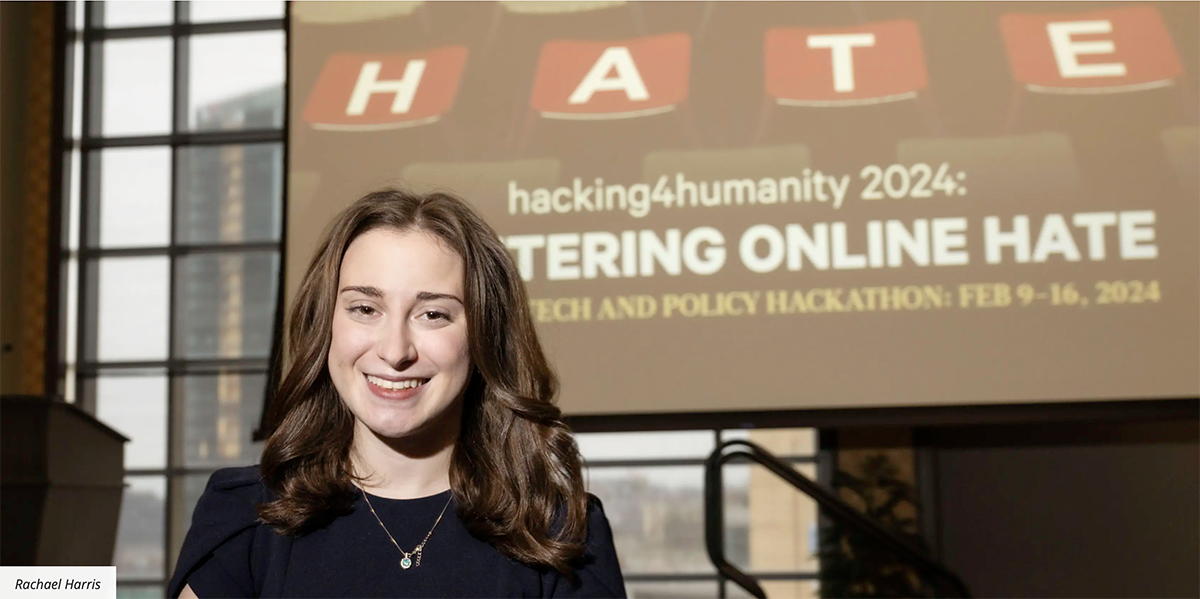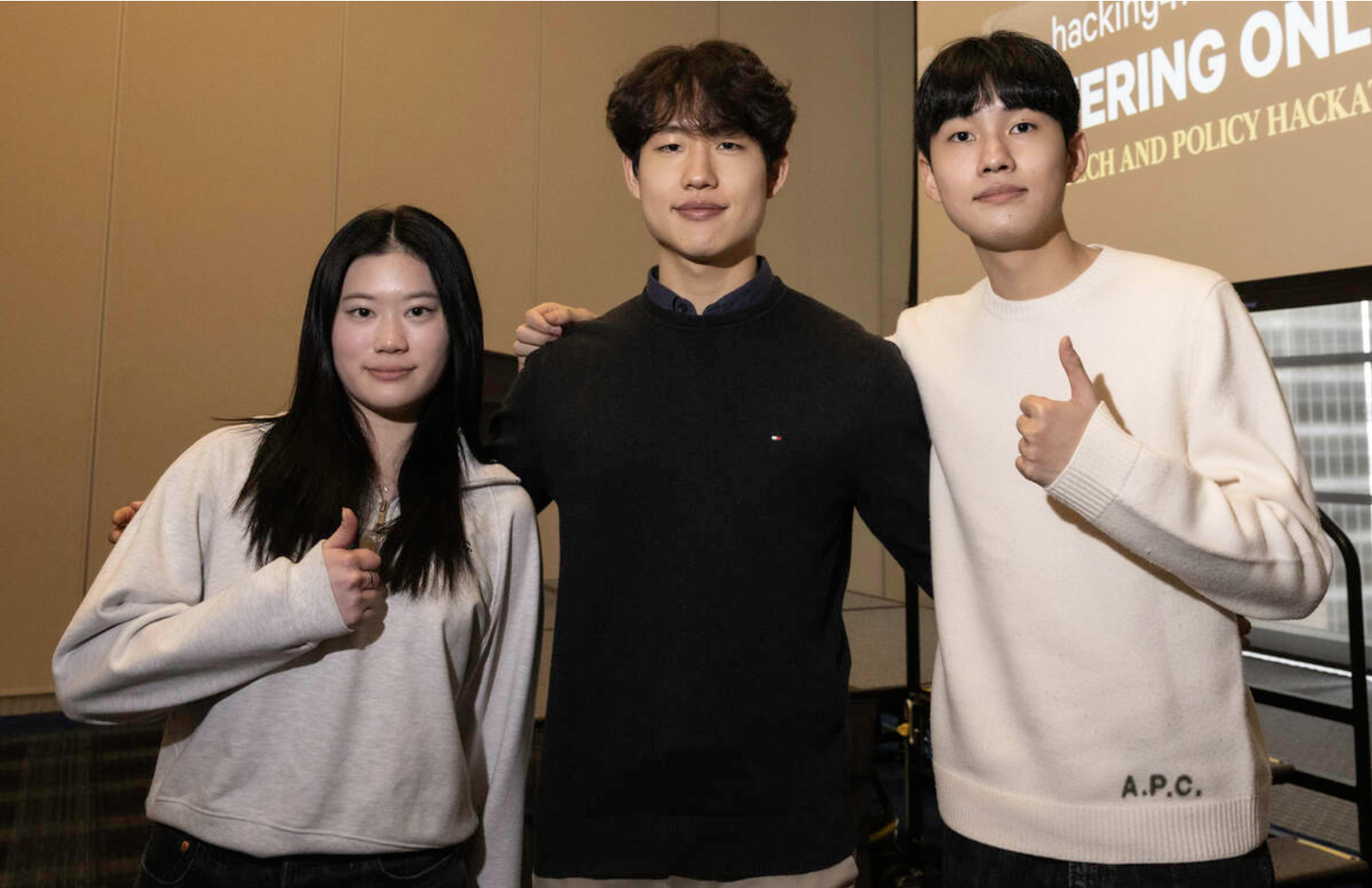
Pittsburgh Universities Unite To Fight Online Hate
By Michael Henninger
Media Inquiries- University Communications & Marketing
- 412-268-1151
In the back of the room, a red-digit countdown clock ticked off 180 seconds as Rachael Harris showed stakeholders at X Corp., formerly known as Twitter, that they could raise advertiser revenue by 1.85% by implementing a partially automated hate speech indicator.
Harris — a graduate student in Carnegie Mellon University’s Heinz College of Information Systems and Public Policy where she studies in the Information Security Policy and Management Program — wasn’t presenting to stakeholders at X. Rather, she was competing in Hacking4Humanity 2024, a hybrid policy and tech hackathon co-sponsored by five organizations across Duquesne University, the University of Pittsburgh and CMU. Harris’ proposal won runner-up in the policy category.
“Hacking4Humanity uniquely allows college students across Pittsburgh to learn, imagine and create new policies and technologies to combat online hate,” said John Slattery, director of Grefenstette Center for Ethics at Duquesne, which co-sponsored the competition. “The collaborative nature across all three universities ensures a wide reach, strong competition, and a unified spirit of innovation and change.”
Sienna Watkins, manager for the Center for Informed Democracy and Social - cybersecurity (IDeaS), another co-sponsor for the hackathon, said Pittsburgh was the right place for this kind of collaboration.
“All these schools are identifying online hate as an emerging issue that we need to pay attention to and study,” Watkins said. “Students are the early adopters of these kinds of technology. They’re on the forefront of being able to identify some of the weak spots in these platforms where hate can spread.”
Individuals and teams at the event presented potential solutions to reduce bias in AI-generated images, combat doxxing and filter out hate speech using AI. Several presentations tackled the issue of hate speech in online gaming.
“We are exploring online hate in esports and gaming platforms. We’re looking at the types of racist, misogynistic and homophobic dialogue that occurs in these communications platforms. It’s very hurtful and detracts from people wanting to engage in these games,” said Susan Baida, the executive director of the Collaboratory Against Hate, a joint research and action center of Pitt and CMU and event co-sponsor. “This age group of students is very active online. And so they came up with some really incredible novel solutions.”
One student team from Carnegie Mellon presented “Mellon Talk,” a program that uses AI and speech detection to automatically filter out profane or hateful speech in online gaming communities. The team comprised Lucia Han, a first-year student studying electrical and computer engineering; Andy Lee, a sophomore studying statistics and data science; and Chris Song, a first-year student studying information systems.

“We want to help provide a safe space for people to really enjoy gaming as a hobby and not worry about hateful speech and biases,” Lee said.
Slattery said that Annie Newman, director of digital strategy for Gov. Josh Shapiro and one of the judges for this year’s Hacking4Humanity, invited the winners of the hackathon to Harrisburg in March to present their projects to members of the governor’s staff.
“Carnegie Mellon University is one of the top technology universities in the country. And Pittsburgh is an incredible tech hub, a go-to place for all things innovative,” Baida said. “So it absolutely makes sense that this is the place to fight hate.”